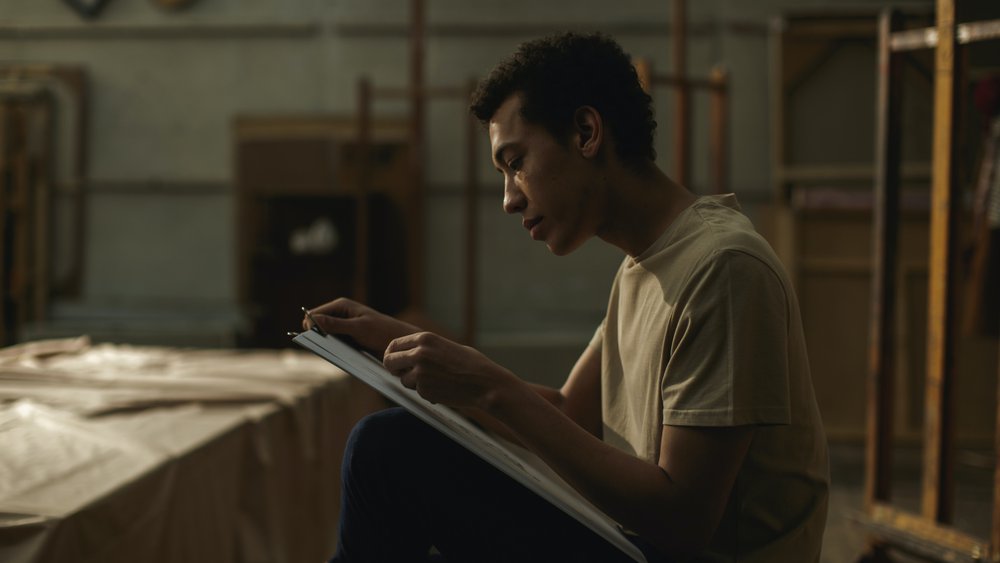10 reasons why most people quit drawing

Drawing is a great way to express yourself creatively and a skill that can be developed over time. However, not everyone who starts drawing continues to pursue it. Many people quit drawing, often due to a lack of motivation or because of various challenges that they encounter along the way.
In this article, we will discuss the top 10 reasons why most people quit drawing and provide some practical solutions to overcome these challenges.
Why do most people quit drawing?
1. The Pressure of Perfectionism
One of the most common reasons why people quit drawing is perfectionism. When starting, many artists feel that they have to produce perfect artwork every time, which can be a daunting task. This mindset can lead to frustration, self-doubt, and eventually giving up.
2. Self-Doubt
Self-doubt is another major factor that stops many people from pursuing their artistic goals. It's easy to feel that your artwork is not good enough, leading to a lack of motivation and eventually quitting.
3. The Comparison Trap
Comparing yourself to others is a trap that many artists fall into. It's important to remember that everyone has their own unique style and that comparisons can be counterproductive. Comparing yourself to other artists can lead to a lack of confidence and motivation, causing many to quit.
4. Lack of time
A common challenge that many artists face is a lack of time. Between work, school, and other obligations, finding time to draw consistently can be challenging. This lack of consistent practice can lead to a lack of progress and eventual burnout.
5. Fear of Failure
Fear of failure is a significant obstacle that can keep many artists from progressing in their drawing skills. Many artists are afraid to take risks and experiment with new techniques, which can stunt their growth and eventually lead to giving up altogether.
6. Burnout and Loss of Interest
Burnout is a feeling of exhaustion and loss of interest in your art. Burnout can occur when artists work too hard, have unrealistic expectations, or do not take enough breaks. When burnout occurs, artists may feel that drawing is no longer enjoyable, leading to quitting.
7. Feeling Stuck
Inspiration is a critical aspect of creating art. When artists lack inspiration, it can be challenging to come up with new ideas, leading to a lack of motivation and eventual quitting.
8. Not seeing any progress
A lack of progress can be discouraging for artists. When they feel that they are not improving or making any headway in their skills, they may lose motivation and eventually quit.
9. Dealing with Criticism and Rejection
Receiving criticism is a natural part of the creative process. However, some artists may take it too personally and feel that their work is not good enough. This can lead to a lack of motivation and eventual quitting.
10. The Misconception of Talent
One of the most common reasons people quit drawing is the misconception that talent is the most important factor in drawing. Many believe that if they are not born with natural artistic ability, they will never be able to create beautiful works of art. However, the truth is that drawing is a skill that can be learned and developed over time with practice and patience.
Solutions to overcome these challenges
Here are some practical solutions to help artists overcome these common challenges:
- Focus on the process of creating art rather than the final product
- Embrace imperfection and use mistakes as opportunities to learn and grow
- Set achievable goals and celebrate progress, no matter how small
- Draw consistently, even if it's just for a few minutes
- Take breaks and don't burn yourself out
- Experiment with new techniques and embrace failure as a learning experience
- Surround yourself with supportive peers who will encourage and motivate you
- Find inspiration in everyday life, whether it's from nature, music, or a favorite book
- Take classes or workshops to learn new skills and techniques
- Remember that comparison is the thief of joy - focus on your own progress and growth rather than comparing yourself to others
- Seek constructive criticism and use it as a tool to improve your skills
By implementing these solutions, artists can overcome the common challenges that lead to quitting and continue to pursue their passion for drawing.
Conclusion
Drawing is a beautiful art form that requires dedication and practice. However, many people quit drawing due to various challenges, such as perfectionism, self-doubt, fear of failure, lack of time, burnout, lack of inspiration, lack of progress, and criticism. By embracing imperfection, setting achievable goals, drawing consistently, taking breaks, experimenting with new techniques, finding inspiration, seeking constructive criticism, and surrounding yourself with supportive peers, artists can overcome these challenges and continue to pursue their passion for drawing.
FAQs
Is it too late for me to start drawing?
No, it is never too late to start drawing. Drawing is a skill that can be learned and developed at any age.
How can I stay motivated to draw?
Setting goals, finding inspiration, and seeking out feedback and support are great ways to stay motivated to draw.
How do I overcome the fear of failure?
Overcoming the fear of failure requires a shift in mindset and a willingness to embrace the learning process, mistakes, and failures as essential steps toward progress.
Is it possible to improve my drawing skills if I'm not naturally talented?
Absolutely! Drawing is a skill that can be learned and improved through practice, dedication, and patience.
Can I become a professional artist even if I started drawing later in life?
Yes! It's never too late to pursue your passion for art. Many successful artists started later in life and became professionals through hard work and dedication.
How much time should I dedicate to drawing every day?
Even just a few minutes of drawing every day can make a difference. However, it's important to find a consistent routine that works for you and fits into your schedule.
How do I deal with negative criticism?
Negative criticism can be difficult to handle, but it's important to remember that it's not a reflection of your worth as an artist. Try to focus on constructive criticism and use it as an opportunity to improve your skills.
How can I find inspiration when I feel stuck?
Inspiration can come from many sources, such as nature, music, books, or even just taking a walk outside. Try to find inspiration in everyday life and experiment with new techniques to keep things fresh and exciting.




Add a comment
Comments
thank you im 16 and im feleing discouraged but you really helped